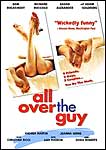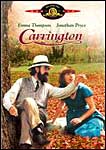 SS Mann
Hunt SS Mann
Huntby William Maltese If you’re a fan of gay erotica, you owe it to yourself to read SS Mann Hunt, by William Maltese. Maltese has once again shown us how well he can write in this genre. Similar to his Conspiracy of Ravens in that the explicit sex scenes are supported by a good story, SS Mann Hunt is an excellent blend of both. We find three men, Brad and Kurt, who are ex lovers from their teenaged years, and the third, Jim, searching for their respective fathers who vanished under mysterious circumstances years before in the South American jungle of Brazil. Complicating the mystery, Kurt Mann’s father is suspected of ties to Nazi Germany, in addition to the possible murder of his friends’ fathers in the Amazon jungle. Kurt would like to clear his father’s name, for a variety of reasons. If he can, he and Brad hope to rekindle the relationship of their youths without the spectre of those unanswered questions about Kurt’s father as obstacles. Although they are all experienced spelunkers, their search leads them into some tight spots involving underground caves, unexpected and sudden flooding, and other surprises. If the outcome of the relationship between Brad and Kurt is in doubt, their passion for one another is not. In true Maltese fashion, Brad and Kurt show us in explicit detail just how passionate they are, and how they manage to overcome fatigue, jungle heat, imagined (or real) shadowy figures tracking their every move, and their own doubts about the wisdom of their quest, to express their mutual enjoyment of each other. In addition to the frequent scenes of erotica, Maltese’s wit finds expression in both the narrative and dialog and keeps the reader enthusiastically along for the ride. Complete with a surprise ending, SS Mann Hunt is an excellent exploration into the Brazilian jungle and the land of gay erotica. For those looking for a story that will keep their attention, without being so weighty that they can’t enjoy the real purpose of the book, SS Mann Hunt is highly recommended. |
 All Over
the Guy with Dan Bucatinsky, (who also screen wrote) Richard Ruccolo,
Adam Goldberg, Christina Ricci, and Lisa Kudrow All Over
the Guy with Dan Bucatinsky, (who also screen wrote) Richard Ruccolo,
Adam Goldberg, Christina Ricci, and Lisa KudrowAll Over the Guy is billed as a romantic comedy of two men, one of whom is consciously looking for his life-partner, and the other who is not; at least not knowingly. They are introduced on a blind date arranged by their straight friends Jackie and Brett, who have just begun to date each other. As the relationship between Jackie and Brett heats up, the one between Tom and Eli finds itself floundering in misunderstanding and a good deal of friction. While the film is categorized as a comedy, and is very funny with a rapid-fire, sharp-witted delivery, it also delves into serious issues between the two men, and separate from the two as a dating couple. At times Jackie’s and Brett’s all-embracing, all-accepting attitudes of Tom’s and Eli’s homosexuality seems forced and flippant, in part because of the nature of the rapid-fire and dry-witted dialog. Doris Roberts, in a supporting role as the receptionist where Eli goes to be tested for AIDS, is depicted as an open-minded, free-speaking older woman. Her frank language is colorful and contemporary but at times, this seemed somewhat contrived as well. The words “too cute,” come to mind. The obstacles that the men had to overcome had nothing to do with their homosexuality, which reflects something that is not always acknowledged in mainstream entertainment, that is that not all problems, not all challenges, not all issues that homosexual men face have to do with their homosexuality. The message is clear, and yet is subtly presented, and in reality is left unstated; sexuality is an important and a vital part of who we all are, and yet is only a part of what defines each of us. Tom’s anger, as we later discover, stems from the fact that his parents are alcoholics. His no-strings, no-commitment attitude is expressed as belligerence and combativeness in his interactions with Eli, yet don’t cloud Eli’s growing feeling that this is the man he loves and would like settle down with. Tom, in turn, begins to question himself, and what it is he wants. During one of their many acrimonious breakups, Tom seeks help for his own alcoholism. Despite the weighty issues, this is a funny movie, and highly enjoyable. If the dynamic between the four friends seems at time artificial and slightly contrived as it did to this reviewer, one must remember that this is a comedic film. One can overlook such things within the “bigger picture” of the story, and in fact, these characterizations may not be evident or problematic to all viewers. As an entertaining movie with a gay couple’s quest for that ultimate “connection” at its heart, this reviewer recommends this movie. |
 Carrington starring
Emma Thompson and Jonathan Pryce Carrington starring
Emma Thompson and Jonathan PryceBased on the biography of Lytton Strachey, this film depicts his relationship with the painter Dora Carrington, their first meeting during the years of World War I and the love they shared. Strachey is an openly gay man who has close ties to the Doonsbury group, a collection of idiosyncratic, British intellectuals (including Virginia Woolf.) Carrington was a complex woman, molded by the Victorian era in which she was raised. She is a virgin until her mid-twenties, with a deep-seated revulsion of sex, which is a central and defining characteristic. Their first meeting is inauspicious and flat, neither of them sensing what their future together holds. What soon develops is clearly a deep love that will not be consummated (although if one reads Carrington’s biography, we see that they do in fact consummate their relationship on one occasion.) Strachey and Carrington are what would be classically called “soul-mates,” and their relationship is traditionally close, loving, and mutually supportive, and yet is also very unusual, in the sense that Strachey continues to seek out and find the male companionship he needs, both sexually and emotionally. His desire to find a man with whom he can find a life-long mate is never realized, and yet that emotional role is fulfilled by Carrington. Dora Carrington’s love for Strachey is all-consuming, and in her own words, “self-abasing” and although she was a respected painter, her love for him becomes the single-most defining factor of who she is. She does, in fact make choices, some seemingly self-sacrificial, based on her love for Strachey. She eventually marries Raphe, a man she does not love, so that he will remain close to Strachey, who has fallen in love with him. Adding to the complexity of Carrington as an individual are her outspoken and overwhelming feelings of “wanting to be a man.” Although today we don’t give a second thought to a woman dressing in pants, in post-Victorian England it was, in fact, cross-dressing, and Carrington often did this, in addition to keeping her hair cut unconventionally short. Although the term “transgendered” is never mentioned in the film (or in either of their biographies) the feelings she describes, and ways in which she chooses to appear, lend credence to this possibility. This film is eloquent in its depiction of these two people and their unusual bond that, in reality, wasn’t very unusual at all. It bears a closer resemblance to convention than to difference, regardless of its surface ad hoc appearance. To those who will see this film but who will not read either Strachey’s or Carrington’s biography, a word will be said here that may enhance one’s experience of this film. Much of the dialog between Strachey and Carrington that is heard in the film is lifted verbatim from the many letters that were exchanged between the two, and still exist. This is not made known to viewers, which is unfortunate, because it lends a deeper appreciation and realism to the film. Thompson and Pryce both give outstanding performances. As a testament to a love shared by two people, despite some unusual challenges—because in the end, that’s all they were, this movie is very highly recommended. |
 Johnny
Charles has been appearing in our newsletter for the past
couple of issues, and we are pleased that he has continued submitting
reviews. This issue he reviews William Maltese's SS Mann Hunt, and the films "All
Over the Guy" and "Carrington."
Johnny
Charles has been appearing in our newsletter for the past
couple of issues, and we are pleased that he has continued submitting
reviews. This issue he reviews William Maltese's SS Mann Hunt, and the films "All
Over the Guy" and "Carrington."